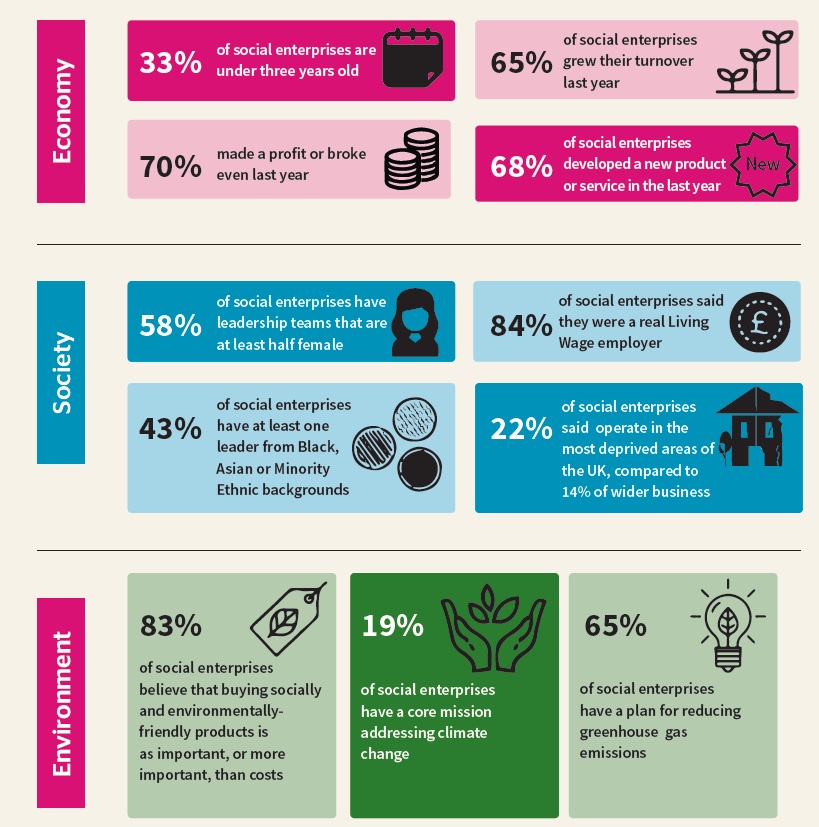Facts and figures
Some key facts and figures about the size and impact of the social enterprise movement
There are 131,000 social enterprises in the UK, with a collective turnover of £78 billion and a workforce of 2.3 million
Social enterprises work in every sector of the UK economy from selling consumer products to providing high quality public services. They run local assets, community energy projects, creative agencies, arts organisations, recycling services, cafes, restaurants, and waste management companies. A third of community healthcare providers are social enterprises.
Social enterprises can be large and work across the UK or beyond; or small and medium size businesses working in a particular city, town, village or street. There are case studies, profiles and stories of social enterprises throughout this website and you can read some of the latest profiles on our dedicated case study page.
Our latest research found that social enterprises outperformed traditional businesses when it came to growth and innovation, reducing inequalities, creating jobs and building a more inclusive economy.
Social enterprises are more representative of wider society than other businesses, with more women leaders and leaders from racialised communities. They empower communities, prioritising staff engagement and ensuring beneficiaries are involved in decision making.


Find out more about social enterprise through our respected research publications
Our State of Social Enterprise reports are the defining source of information on social enterprise. Every two years, they explore what social enterprises do, who they employ, their turnover and scale, as well as their performance when it comes to diversity and environmental impact.
Titled ‘Mission Critical’, the 2023 report shows a growing sector that is not only profitable and productive but truly pioneering.
